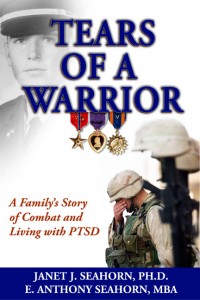May
7
A TIME TO REFLECT
Filed Under Tears of a Warrior, Today's War, Trauma, War | Comments Off on A TIME TO REFLECT
by Janet J. Seahorn, Ph.D
It has been some time now since we heard the disturbing news of the young sergeant who massacred civilians inAfghanistan. According to the media, the individual has been indicted with killing seventeen people, nine of whom were children.
During this time I debated whether or not to broach the subject in our blog. Truthfully, I’m still not certain I want to bring this up again given the enormous amount of media attention. Yet, it seems important to at least give some perspective on what others have been sending us through phone calls, e-mails, etc.
No one would dispute that what occurred was inexcusable. The entire incident is pretty disturbing. However, I continue to wonder who, beside Sergeant Bales is answerable for this horrendous act? Where is the government’s responsibility in choosing to commit our country to two wars yet refusing to enact a draft? Where is the government’s moral accountability in allowing less than 1% of our young men and women and their families to shoulder the enormous burden of continual deployment and redeployment four, five, and six times to various combat zones? Where is the military’s obligation in making sure each troop is in top physical and emotional health before ever being sent back to a war when he/she may not be fully combat ready? And lastly, where is the conscience of each and every American citizen who allows so few to serve in combat and bear the burden of an entire country?
Please understand, I am not trying to be critical, but it is crucial that every aspect of this terrible situation be carefully examined. For you see, these are questions we should all be asking if we are going to do better in the future. Because, unfortunately, in our future there will still be wars. What are the lessons to be learned?
In reality, Sergeant Bales is morally, legally, and physically accountable for this terrible deed. He cannot use the argument of having PTSD as the sole contributor for his actions. Millions of past and present veterans have and are suffering with this condition. Yet few ever commit such violent and unforgivable acts. No, according to what we are being told, these murders were committed by Sergeant Bales for reasons yet to be disclosed. However, each of us must question, who else should bear the consequence of such horrific actions? Are we as a nation pushing some of our troops to the breaking point? War is hell and too much war may be even worse!
Then, as I struggle to come to my own personal conclusion, I am reminded of something I have read many times, “There by the grace of God, go I”.
Mar
12
EXPLAINING PTSD IN A VIDEO
Filed Under Combat PTSD, PTSD, PTSD treatment, TBI & PTSD, Tears of a Warrior, Trauma, Veterans | Comments Off on EXPLAINING PTSD IN A VIDEO
by Janet J. Seahorn, Ph.D
For centuries societies have been trying to explain why warriors return from combat “stranger” than before they had left. In our book, Tears of a Warrior, we wrote about how the Roman’s sent their troops who had recently arrived back from battle to a tranquil farm away from the city to recoup from their emotional wounds.
It seems like every war had its own special term for such suffering; words such as combat fatigue, shell shock, warrior’s heart, etc. However, none of these really explained much about why the individual wasn’t able to put the war behind them and get on with their lives.
Joe Novak, another of our readers sent this YouTube video to Tony. For the person who has never experienced combat, this will be an informative eight minute clip which both “shows” and “tells” the effects of battle. For those who have been to hell and back, you may not need to view the film; you have already lived it. If you do, keep the last message in mind as you continue your healing journey back to your new normal.
http://www.greatamericans.com/video/Vietnam-Vets-and-PTSD;Veterans-Videos
Blessings and, once again, Thank You for Your Service.
Tony and Jan Seahorn
Both KINDLE & NOOK can be ordered directly from our website.
Oct
15
DOES ANYONE CARE?
Filed Under American Patriotism, Tears of a Warrior, Today's War, Trauma, Troops, Veterans, War | Comments Off on DOES ANYONE CARE?
by Janet J. Seahorn, Ph.D
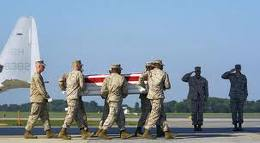
It’s been on the news and in the papers – the latest studies about our military personnel serving in Iraq and Afghanistan.
The studies done by the Pew Research Center were based on two surveys between July and September (Denver Post, Oct. 6, 2011). One survey focused on military individuals who are currently on active duty along with those who have served but are no longer active. The second survey polled over 2000 adults who had never been in the military.
What disturbed me most however was not the report that many of our troops are either “ambivalent” or do not feel the current wars in Iraq and Afghanistan were “worth the sacrifices”. Nope, what was most unsettling for me was that adults polled who had never served in the military did not give much thought to those serving in combat. Many felt that those who volunteered to serve their country knew what they were getting into.
- 84 percent of these modern-era warriors say the general American public has little or no understanding of the problems they face, with 71 percent of the public agreeing.
- Many Americans agree that since the terror attacks in the U.S., the military and their families have made more sacrifices than the general public. But even among this group, only 26 percent say this gap is “unfair,” while 70 percent say that it’s “just part of being in the military”. (msnbc.com staff and news service reports updated 10/5/2011 5:50:40 AM ET 2011-10-05T09:50:40)
I guess this last research bullet just didn’t sit well with me. Probably because as a family we have lived the aftermath of combat, lived with the ghosts of the dead and dying, and had to cope with the nightmares, anxiety attacks, and flashback memories. It isn’t that any vet or his/her family wants empathy for his/her service, but to read that 70% believe that “it’s just part of being in the military” seems like a really insensitive statement.
I am not sure that any person, young or old, has a true idea of what war and combat is about. I am pretty sure, on the other hand, that none of them had any clue that what they do, see, and experience in hell will stay with them for a lifetime. That the war they fought on foreign soils will follow them home and into their living rooms, relationships, and careers. Few of them had any clue that these things were “just part of being in the military”.
Perhaps, since Vietnam, too many Americans have been too far removed from the sacrifices of war. During WWII everyone on the home front had to give up something for the war. Now, most give up nothing, while those few who serve give up far too much. The very least we at home can do is give two or three minutes each day to say a short prayer for those and their families who serve. Just remembering our military will certainly make us, not merely better people, but a more thoughtful, compassionate nation.
Jul
26
PERSONAL FORGIVING
Filed Under Combat PTSD, Family, Giving, Healing, Life, PTSD, Trauma | Comments Off on PERSONAL FORGIVING
by Janet J. Seahorn, Ph.D

There is a saying in the bible stating, “Forgive and ye shall be forgiven”. Yet, here’s the dicey part for many of us, some times it is harder to forgive ourselves for things we have and have not done (some of which are more perception than truth) than it is to forgive others.
Military men and women who serve in intense combat zones must learn to identify and face up to their experiences from their emotional position if they are to begin to heal. Putting “these feelings into words or some other symbolic expression”, as Bessel van der Kolk asserts, helps complete the story in a restorative manner. Everyone has things they have done that they wish could be forgotten. The problem occurs when we can’t just forget, or the personal blame continues to grow. The burden gets heavier unless some of the weight is released. We cannot be set free until we understand that we’re not fully responsible for much of the trauma that took place in our lives.
As humans, many of us tend to take too much ownership for circumstances that are far beyond our full control. We simply do the best we can, and sometimes that “best” does not feel good enough. Forgiving ourselves is an important step in the healing process. Without personal forgiveness, we hold too much anger, sadness, and anguish in our minds and bodies. It is little wonder we become emotional and physically drained.
Realistically, I do not condone the open spilling of our feelings. Sometimes when I have been overly urged to do so, I left the exchange even more vulnerable and irritated. And I definitely did not want to be in the presence of that person anytime soon. It is only when we can begin to share with someone who is open to listening and able to keep our words in confidentiality can we feel safe enough to share our story. Trust is crucial. Patience is necessary. Hope for living a better life is essential.
Daniel Siegel writes about the importance of “feeling felt” when sharing emotions. We cannot “feel felt” if, when sharing our stories, we are constantly being interrupted, interrogated for more details, or given advice on how we should or should not have acted or felt. Such disruptions only validate our instincts to suffer in silence. Unfortunately, unspoken suffering only compounds the problem and adds to the burden.
The challenge is finding the right person (or people) at the right time to begin your dialogue. For many of us it may or may not be a close family member or friend. Sometimes talking to a reliable “stranger” can bring clarity to our experience.
Begin to explore who may be your safe sounding board. In doing so, the weight of your story may begin to diminish. You may just realize that carrying this burden is no longer helpful or necessary. Free yourself of the guilt. Free yourself of the pain. Free yourself of a past that can now be accepted, learned from, and honored.
You deserve no less as you live towards that healing place in your mind, heart, and body.
Jun
25
GOOD GRIEF
Filed Under Combat PTSD, Good Grief, Life, PTSD, Tears of a Warrior, Trauma, Veterans, War | Comments Off on GOOD GRIEF
by Janet J. Seahorn, Ph.D

Good Grief – sounds like words Charlie Brown would proclaim when something illogical occurred. When you think about it, he was not that off base using this phrase, Good Grief, because grief, at least the first phase of mourning, is anything but logical. Experiencing grief is not a rational process. It is gut wrenching and emotionally challenging. Grief by its very definition: “deep sadness or mental distress caused by loss, remorse, or bereavement” (Webster’s Dictionary) leaves the sufferer questioning if he/she will or can survive the agony.
Too many of our military men and women have had to bear the loss of friends. Yet, due to circumstances of the battlefield, they cannot take the time, energy, or effort to fully move through the grieving process. Each individual must be able to carry on without the luxury of grieving. In war, there is always another job to do, a new battle to wage, and perhaps even further loss. Add PTSD to the grief process, and the mountain to healing becomes even steeper to climb.
It is little wonder that our young and old warriors return from combat with unresolved issues. Many of these problems center around the grief process or more accurately, lack of resolving the immense weight of unsettled pain. If we were to look at the grief process described by Elizabeth Kubler-Ross’ five stages – denial, anger, bargaining, depression, and finally acceptance – it is pretty easy to identify where & why many can get permanently stuck in one phase or another. To complicate matters, real grief processing requires going in and out of the various stages for a long period, often times skipping phases only to be plunged back to that pit at a moments notice.
Families of vets often state that their loved one is in denial; denial that they are suffering, denial that there is anything wrong with them, and denial that they can handle the situation without help. Then there is anger; anger at the government who sent them to fight, anger at the enemy, anger at a civilian society that has no clue of what they went through, and most devastating is anger at themselves for not being strong enough to overcome the trauma of combat. As far as bargaining, most warriors don’t seem to bargain for much of anything except for a break to live without all of the emotional baggage.
What we see a great deal of, when and if a veteran reaches this next phase is depression. This is the phase that may be the most difficult to get through and endure without resorting to self medication. For many the moments between denial, anger, and depression can be small; often they are mixed together in a whirling mass of chaos. Achieving acceptance is seldom a permanent stage, a stage which many of our wounded warriors never attain even for brief moments.
Dealing with Post Traumatic Stress is dealing with grief. It is not easy; it is not quick; it definitely is not logical; and it is not a journey that any one of us should have to go through alone. Is there such a thing as Good Grief? Truthfully, I am not sure any grief is good, but I have witnessed and have personally gone through mourning that is doable. To be perfectly honest, I am not sure grief made me stronger, but it certainly made me more compassionate and gave me a deeper appreciation of each ordinary day where I can breathe freely without feeling my heart breaking.
And that in and of itself is pretty darn GOOD.
Jun
17
LIVING STORIES
Filed Under Combat PTSD, Life, PTSD, Tears of a Warrior, Trauma, Treating PTSD, Veterans, War | Comments Off on LIVING STORIES

It came in the mail, a book from a professor at Eastern Kentucky University, The Journal of Military Experience. Most publications I get from universities are on topics that deal with academia, you know – ways to teach literacy, how the brain works, and other research topics. This book was different. It wasn’t written by a bunch of stuffy professors based on their special investigative studies. Nope, this book was written by a group of young veterans who had served overseas and were trying to reintegrate into civilian and academic life. Needless to say, many of the stories and poems were composed with emotions that were still raw from combat.
The authors were students in Professor Travis Martin’s writing class. The purpose of his unique course was to help with the initial assimilation phase of university life. “Some of the authors write about the unspeakable things that they have been asked to do, or more accurately, that have been done to them. But some focus solely on that work of translation, making sense of a warrior culture and the mentality of an individual who has been bred, trained, and conditioned by a society in desperate need of a few willing to sacrifice for the many (Introduction).”
The theme in many pieces confirmed how challenging returning from war was for these young warriors. They wrote about who they were before combat and how they had changed from the experience. How seeing friends die before their eyes, how being shot at on a regular basis, how tough it was to determine who would live or perish depending on their interpretation of an approaching car or a family on the side of the road, how these battle experiences made their time during and after conflict more demanding. One marine described “every day someone else would die or get seriously injured. One of my friends lost his legs from a roadside bomb right outside our front gate at 0200 in the morning (Guy Robert Lubin, p. 6-7)”.
Yet, in spite of all of the horror, all the wounds both physical and emotional, not one individual regretted serving his country. Not one person wished he/she did not complete a tour of duty overseas. What some did question, though, was when or if they would ever be free from the fiends of warfare. One author acknowledged “you truly stop caring. You don’t want to shoot, but you will. You won’t think about it, until you get home that is (Bradley Johnson, p. 53)”. He continued, “While you fight and suffer and struggle, you are also changing, becoming someone totally different. The harsh and violent realities of war forces you to change. Emotions are an inconvenience — they distract you — making you feel and think instead of react. A distracted soldier is a dead soldier. My evolution was a great thing on the battlefield, but it is just as much a bad thing when you get home (p. 53)”.
In this book, there are profound words and stories from those few who have given so much for freedom in our country and lands far away. They are “living stories” from real warriors. They ask nothing but a smidgen of understanding and a bit of healing when they return. For every vet past, present or future let us value the sacrifice and honor the service never failing to remember how all gave some, while some gave all.
Jun
13
WHAT YOU DON’T TALK ABOUT
Filed Under Combat PTSD, PTSD, Tears of a Warrior, Trauma, Treating PTSD, Veterans, War | Comments Off on WHAT YOU DON’T TALK ABOUT
by Janet J. Seahorn, Ph.D
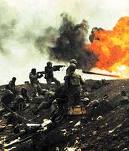
It was something I was not going to do – view the HBO special War Torn.
I tried watching it almost two months ago but didn’t last ten minutes before I had to turn off the DVD. It had too many reminders of suffering associated with the aftermath of combat. Yet, last night I decided to see what it had to say about PTSD, since this has been our mission for the last twelve years – including research & writing.
Throughout the movie there seemed to be a very powerful, recurring theme, a theme of silence. Silence made the veteran a prisoner of his/her own memories. It did not matter what branch of the military a person served – Army, Navy, Marines, Air Force, National Guard…
The role one played during combat was quite expansive, overwhelming individuals who served in all facets of war. From the front lines of combat, to medics, nurses, body baggers, and any person who had participated in the tensions of war. What was similar, however, was the manner in which the experiences were seared on the mind, body, and spirit. This mark of trauma often left the individual with a sense of hopelessness, apprehension, torment, and sometimes shame.
Then, to add insult to injury, when the vet came home… home to a place that he/she would feel safe and normal, returning to civilian life sometimes added greater stress. Many family members and friends simply wanted the vet to be like he was before he left for war. Become normal again.
Perhaps these words might offer some understanding of what isn’t talked about and isn’t said when a war veteran returns home.
THINGS YOU DON‘T TALK ABOUT
By Janet J. Seahorn, Ph.D.
What don’t you talk about,
You survivors of war?
You, who are suppose to be brave,
To be fearless and bold.
You, who have witnessed the best of mankind,
And the worst.
You, who daily endured death;
Who lived with the unknown
The woundedness of others
And the scars within yourself.
What don’t you talk about,
You warriors of battles recent and old?
The panic attacks that grip your throat,
The night sweats from vivid dreams;
Anxieties that propel you to a universe
That seems out of control.
Anger unprovoked and dangerously destructive.
The self-medication… attempts to silence
The voices and erase the gory scenes.
What don’t you talk about
You, who cry with Silent Screams?
You, who cannot seem to find your words,
For words are too simple, too clean
To describe your distress
To others who have no concept of war.
For what you don’t talk about
Your brother and sister warriors understand.
They have been to that place of darkness.
They know – and in that knowing
They are there to walk beside you
If only in spirit.
Perhaps these fellow casualties
Make talk a bit less necessary.
May
19
TOUCHED BY COURAGE
Filed Under Brain Injury, Combat PTSD, Events, Family, Giving, Life, Love, PTSD, TBI & PTSD, Tears of a Warrior, Trauma, Veterans, Wisdom | Comments Off on TOUCHED BY COURAGE
by Janet J. Seahorn, Ph.D
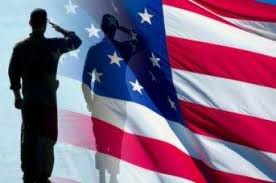
A few weeks ago, Tony and I spent several days in the Grand Strand area of Myrtle Beach, South Carolina.
It was Military Appreciation Week.
Due to the special invitation of Retired Army Officer Sinclair Swan, we had the privilege of working with two local groups of military veterans, their spouses and family members.
During the day we met with several group members and their spouses. It was an amazing opportunity to not just speak to the individuals in attendance, but to listen and hear their stories as well. Each account reminded us of the enormous amount of courage it takes to get up each day, live it as best one can, and give back to others.
Two of the veterans have adult children who experienced traumatic car accidents which left them with severe head injuries. These vets are now the primary care givers. Not only have they endured their own trauma; now they must bear the suffering of their children. Several are challenged by serious health issues for them and/or their spouses.
Yet, they continue with great effort and fortitude to move forward. It is a humbling gift to have others shares their trauma and heartbreaks.
Contrary to some public perspective, most of these vets have lived and are living successful and productive lives. In spite of their demons, they have deliberately chosen to not let the past destroy the future. They have elected to make a difference for themselves, their families, their communities. Sinclair Swan meets every Saturday with vets who need help in filling out government forms to obtain services. Each has made significant contributions to serving others.
One individual wrote a special poem many years ago. Upon returning from Vietnam he described how he became homeless, sleeping in parks, and getting his “fixes” when needed. Then, one day, another homeless friend suggested they go to a church soup kitchen for a meal. It was there that a miracle occurred and his life changed. He got his faith back, his spirit, and eventually his life. At that time he wrote a poem which he has allowed us to share with you.
A Poem
By William Huffaker
If I only had one wish to make,
but that wish would surely come true.
I’d wish that I would be given the light
to turn the darkest sky into blue.
Now to you this may sound
like my mythical dreams
have blurred my vision
so that this only seems
to be an illusion
of hopeful abound,
and that my wish
I’ve not really found.
But I’ve found it I tell you.
As I’ve sought it in truth.
And I know now this answers’
been here since my youth.
But I just couldn’t see
through the clouds in my mind.
Through delusions of grandeur
I just couldn’t find.
This fabulous dream
that just had to be,
waiting and knowing,
someday that I’d see.
And even though skies
still sometimes turn black.
And visions of grandeur
still sometimes come back.
I know that there’s light
in the darkest of night.
And the tenderest loves
never far from my sight.
And now that my dream
has become something true.
If I had one more wish,
I would wish it for you.
Apr
24
LIVING INSIDE OURSELVES
Filed Under Combat PTSD, Life, Peace, PTSD, Tears of a Warrior, Trauma, Treating PTSD, Veterans | Comments Off on LIVING INSIDE OURSELVES
by Janet J. Seahorn, Ph.D

We reside within our own wondrous environment, within ourselves, and wander about the internal hills and valleys everyday. If we are lucky and have lived a full life, the landscape of our inner country is filled with incredible diversity.
Mountains and valleys only have depth based on the extent of our experiences. The brilliant hues of colors cannot be painted on an empty canvas. Nope, such vividness is achieved through a great many life events: joy, grief, humility, arrogance, chaos, serenity… all mixed throughout the years.
Yet, through all our trials and triumphs, with a bit of luck, our inner artist refuses to put down the paintbrush. Each day offers elements to add to the internal country; an element that increases the vastness of the spirit. Within ourselves we wander with purpose and courage. Trauma takes a toll which only hope can overcome.
We become our best selves not because we lived a safe, comfortable life, but because we have fully lived. There is a huge difference between a life of ease and one of worth. The first took little effort; the latter required a deep sense of duty, sacrifice, relentless perseverance, and sometimes tears. All of these make a life of worth a special gift to the world. A gift that lives far beyond our short existence.
Which life have your lived so far. Which life are you living now? What would your canvas look like? Certainly, like any remarkable work of art, it would have its dark contrasts; yet, I hope it would also contain sweeps of light, touches of brilliant colors, and areas of tender hues which embrace a sense of peace and serenity.
Mar
25
LOST IN WAR
Filed Under Tears of a Warrior, Today's War, Trauma, War | Comments Off on LOST IN WAR
by Janet J. Seahorn, Ph.D
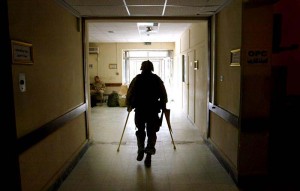
In our book, “Tears of a Warrior: A Family’s Story of Combat and Living with PTSD “, one chapter talks about the “Humpty-Dumpty Effect”. Most people know the children’s nursery rhyme where the poor egg falls off a wall and breaks into numerous pieces that can’t be put back together again. For a veteran, war can be the culprit that pushed Mr. Dumpty off his perch. In our civilian culture we might try and sue for all a person is worth, however in war there are too many different elements to specifically place the blame of a broken body.
The underlying analogy of Humpty-Dumpty is what he lost when he fell and cracked his inner and outer shell. The major damage may be a lost sense of wholeness. One goes into combat young and feeling invincible and often returns in pieces. Pieces when put back will take super gorilla glue to hold together, while some pieces many not mend regardless of the care applied.
Searching for those lost pieces may become a never-ending journey. Putting back the broken eggshells of the body, mind, and heart can be a life-time challenge. The delicate part of the process occurs unexpectedly when hidden memories, ghosts of conflict, and unresolved grief overtake Humpty and rescrambles his being, again and again. It can be a daily occurrence for many vets and their families, and sometimes, in attempting to put the pieces back, we run out of glue.
Finding what was lost in war may be a pointless pursuit, like looking for a coin in a vast sea of sand and rock after it has fallen off a steep cliff. One will never fully retrieve his/her sense of innocence. He will never regain that youthful sense of invincibility known prior to combat. She will never view the world like she did before looking at scenes of devastation, death, and the severely wounded. The security of childhood has been turned into the reality of a sometimes cruel and inhumane world. A world that is different for the veteran than for people back home who have never witnessed war’s bluntness.
Perhaps Humpty may never retrieve or replace his lost pieces or restore the wholeness that existed before war. Yet, being pasted back may bring together a renewed sense of purpose and personal aspirations. Mosaic eggs have their own unique beauty. A beauty that cannot be replicated for each section of the egg is placed in a distinct part of what was once a solid structure. With enough care and support, the shell can once again become sturdy and uniquely whole. As for me, while I am using the sticky stuff, I think I will put a generous sprinkle of glitter and gold that will enable the sunlight to reflect the new dimensions of the outer and inner egg shell.
Maybe our veterans’ youthful wholeness was lost. We will surely grieve its purity. Yet, do not refrain from celebrating the physical and emotional strength of the new Humpty-Dumpty. He, in his full glory, is not lost, only remolded into something with greater substance, courage, compassion, and hopefully a whole lot of sparkle.





